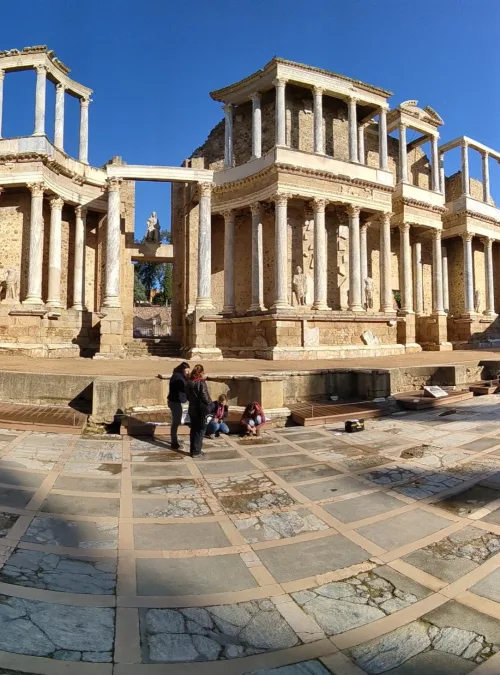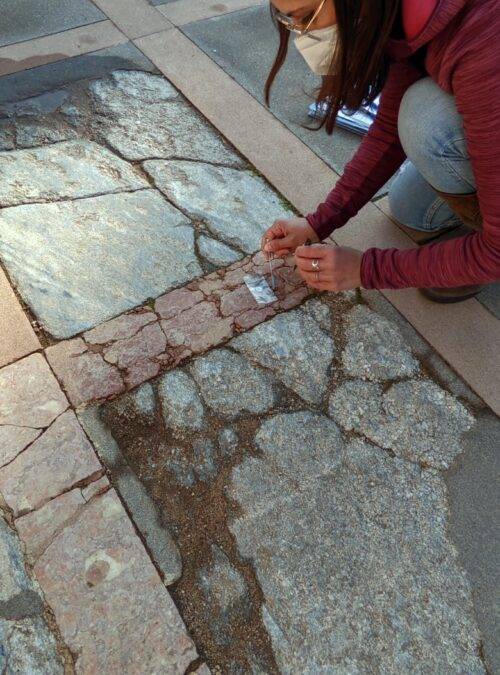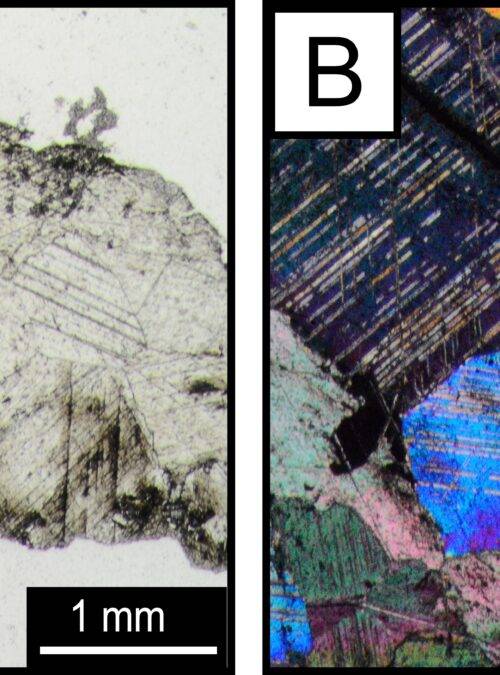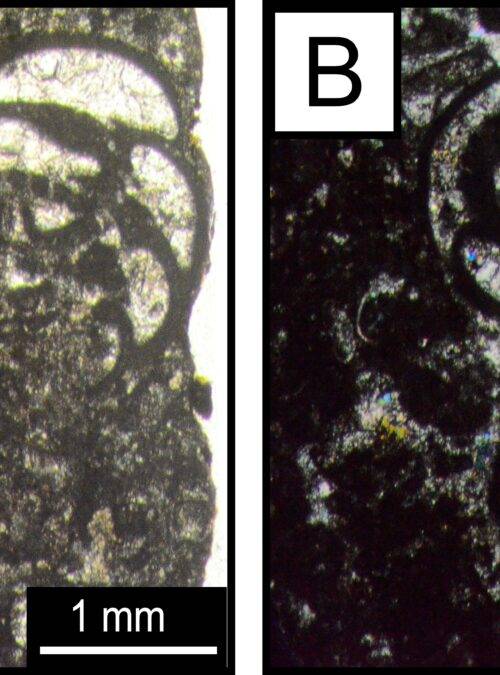CHARACTERISATION AND EVALUATION OF BIOCONSOLIDATION BY MEANS OF BACTERIAL CARBONATOGENESIS OF THE ROMAN THEATRE OF MÉRIDA (EXTREMADURA)
This Roman theatre is an archaeological site considered a World Heritage Site (1993) and is located in Mérida. Inaugurated, according to the inscriptions on the building itself, between 16 and 15 B.C. and promoted by the consul Vipsanio Agripa in the so-called Augusta Emerita colony, this theatre has undergone partial demolition, covering with earth and partial reconstruction at various points in history. It is currently the venue for the Mérida International Classical Theatre Festival.
For this project, a number of samples of stone and mortar material from the pavement were analysed. The effectiveness of a bioconsolidation treatment applied to these materials was also evaluated. For this purpose, X-ray diffraction (XRD), polarised optical microscopy (POM) and scanning electron microscopy (SEM) analysis techniques were used, as well as the determination of mercury injection porosimetry (MIP) and infrared spectroscopy (FTIR). Surface hardness was also determined by portable equipment and surface cohesion assessment, as well as in-situ capillary absorption and moisture content by portable equipment.




